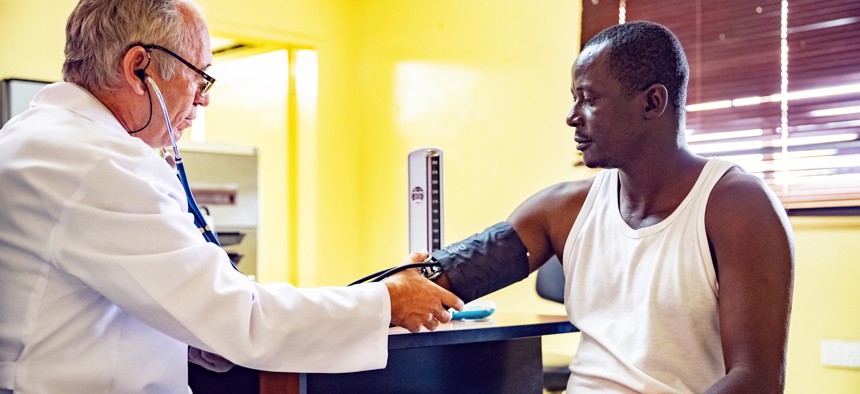Report finds one third of New Yorkers have high healthcare needs
The Robin Hood Foundation’s latest Poverty Tracker also found that New Yorkers within subgroups with high healthcare needs, including those that are Black and Latino, are also more likely to be economically disadvantaged.

one third of New Yorkers have high healthcare needs GCShutter/Getty Images
The Robin Hood Foundation, in partnership with Columbia University and The The Leona M. and Harry B. Helmsley Charitable Trust, recently released its quarterly Poverty Tracker report, “Special Series on Health and Health Care in New York City,” which found that one third of New Yorkers have high health care needs. High healthcare needs is defined as having multiple chronic health conditions, a work-limiting health condition, and/or severe psychological distress. Other subgroups with high healthcare needs include older New Yorkers, U.S.-born New Yorkers and those with less education.
The report also highlights that New Yorkers within subgroups with high healthcare needs, including those that are Black and Latino, are more likely to face economic disadvantage than those without, making it even more difficult to access care.
"Both poor health and poverty limit the potential of individuals and families to prosper and thrive. Given the strong relationship between poor health and economic hardship, many of the most vulnerable New Yorkers end up experiencing both," said Matthew Maury, Senior Research Analyst at the Center on Poverty and Social Policy.
"We were interested in studying how New Yorkers with high health care needs fared economically with the hope of identifying possible solutions,” Maury continued. “We found that, in a given year, 40% of New Yorkers with such needs have trouble meeting routine expenses like paying for food, utilities, medical care, and housing, or run out of money between paychecks. Even more stark, this number jumps to 70% over a five-year period.”
The Poverty Tracker report, launched in 2012, surveys a representative sample of New Yorkers to research poverty in New York City. The report takes a look at the relationship between poverty and healthcare disparities for New Yorkers. The special series is the first of three Poverty Tracker reports that focuses on research concerning health care consumption.
Researchers said they hope the latest report will add context to the current state of New York City by encouraging readers to keep in mind the relationship between health and economic wellbeing and hopefully influence policy making. The coronavirus pandemic disproportionately affected Black and Latino communities economically, in addition to these communities already facing higher risks of serious illness and COVID-19 mortality rates.
“Not only does our country lag behind others in health and life expectancy, it is also home to stark inequalities with respect to health outcomes,” said Richard R. Buery Jr., CEO of Robin Hood. “Health care prices continue rising, often demanding astronomical prices for lifesaving drugs, procedures, and services, and yet those with the highest health care needs are the same communities who are experiencing higher rates of poverty in New York City.”